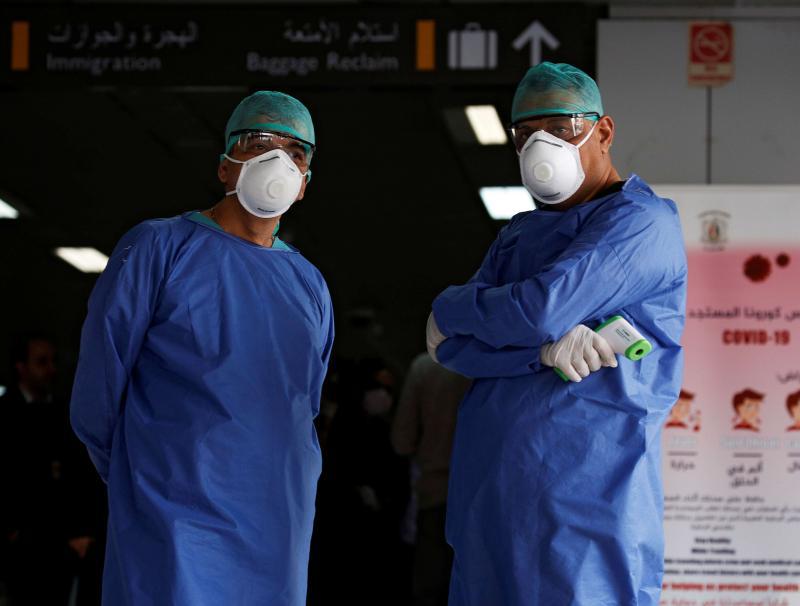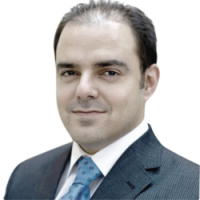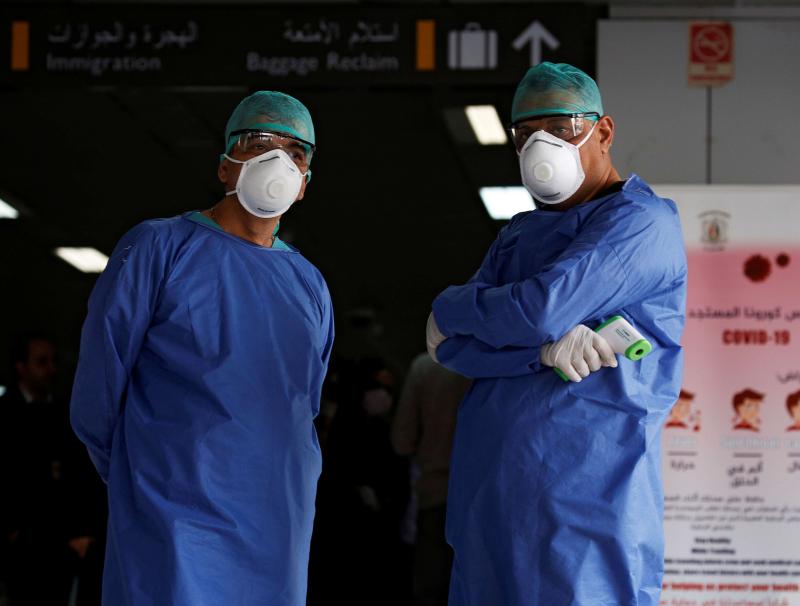Syria’s government makes dubious claims about COVID-19
A video is making the rounds on Syrian social media networks of veteran comedian Yasser al-Azmeh singing that he refuses to shake anybody’s hands — let alone kiss them — fearing a deadly virus. The video was shot back in 1988, but it is going viral today at a time of a global coronavirus pandemic.
The Syrian government continues to insist that COVID-19 has not reached Syria. Such an argument might be difficult to digest, since the deadly virus has surfaced in neighbouring countries like Jordan and Lebanon. The numbers are even higher in Iraq, where the government has cancelled Friday prayers in some places and closed schools, universities and cinemas. This poses a very serious threat to Syria because, for the past five years, thousands of Iraqi fighters from the Popular Mobilization Units (PMU) have travelled freely to Syria to fight alongside the Syrian Army. These fighters will have roamed Syria’s markets, mingling with ordinary Syrians and live in densely populated, and often overcrowded, neighbourhoods.
A large proportion of these fighters will have travelled to Syria from Iran, where they received their military training. Iran, of course, is another coronavirus hotspot, with confirmed cases of COVID-19 numbering in the tens of thousands. Additionally, Syria hosts a large number of Iranian troops who have been either fighting on the battlefield or serving as advisers to the Syrian government. In Tehran, cabinet ministers attending meetings wear protective masks — but none of that is happening in Syria.
Over the past two weeks, opposition websites have accused the Syrian Health Ministry of concealing the truth from ordinary Syrians, including reports that 22 Iranians have been diagnosed with COVID-19 and are being quarantined in the vicinity of Sayida Zeinab, on the outskirts of Damascus. This week, even pro-government voices started peddling a similar line, with Lebanese journalist Rafik Lutfi writing that 400 COVID-19 cases had been registered in Syria while the Ministry of Health has taken “no measure, except silence.” On March 10, a state-run hospital said that one person was admitted on suspicion of contracting COVID-19 but his tests proved negative. As a precautionary measure, Syrian authorities have suspended flights to and from Iraq and Jordan for one month, while the private Syrian airliner Cham Wings cancelled all flights coming from Iran starting March 1. Schools and universities remained open across Syria, despite neighbouring countries shutting them down.
“They want us to believe that Syria is immune from everything” chuckled Siham, a student at the Faculty of Dramatic Arts in Damascus, speaking to The Arab Weekly newspaper. “We have no coronavirus; the Syrian Pound is doing fine… the reconstruction process is underway — and the skies are blue in Damascus.”
Muhiddine, a medical doctor in Damascus, told The Arab Weekly: “Its only logical for the Coronavirus to reach Syria but I don’t think it has reached us yet. We have a very outdated healthcare system that is suffering from ten years of sanctions, mismanagement, and corruption. We cannot quarantine people nor can we test them properly. If the virus were here, we would not be able to combat it and it would spread like forest-fire.”
If COVID-19 is confirmed in Syria, it could be fatal for the war-torn nation. In government-held areas, hospitals are still functioning but suffering from a major shortage of medical equipment and drugs due to international sanctions. These sanctions have prevented hospitals from upgrading their existing equipment and buying spare parts. This has been exacerbated by the dollar crunch that has ripped through the nation in recent months. Private hospitals claim that they have not been able to buy anything from Russia, Iran, or China, simply because the ability of ordinary Syrians to pay for state-of-the art medical services is currently lacking. Six months ago, the exchange rate stood at 600 Syrian Pounds (SP) to the US dollar. It now stands at a staggering 1,000 SP, draining the already razor-thin savings of ordinary Syrians, whose income have been reduced to comically low levels. Labs that conduct testing for the coronavirus are charging 100,000 SP ($100 USD) — higher than any salary in the Syrian public sector.
However, the international travel ban that has been in-place on Syria since 2012 might be a blessing in disguise. Many nationals whose countries have been plagued with COVID-19 simply cannot travel to Syria and their carriers don’t land at Damascus International Airport. There are no flights from Italy, for example, which has the highest number of COVID-19 cases in Europe. The same cannot be said for the opposition-held city of Idlib in the Syrian northwest, where there are foreign fighters aplenty who hail from a handful of nations with confirmed COVID-19 cases, like Pakistan, Tunisia, France, and Iraq. There are also a large number of Turkish troops manning the occupied cities of Jarablus, Azaz, Afrin, and al-Bab, interacting frequently with the armed opposition and residents of Idlib. At least one case of COVID-19 has been confirmed in Turkey, meaning that there is a possibility of the virus spreading in the Syrian northwest.
Sami Moubayed is a Syrian historian and author of Under the Black Flag.
This article was originally published in The Arab Weekly.






